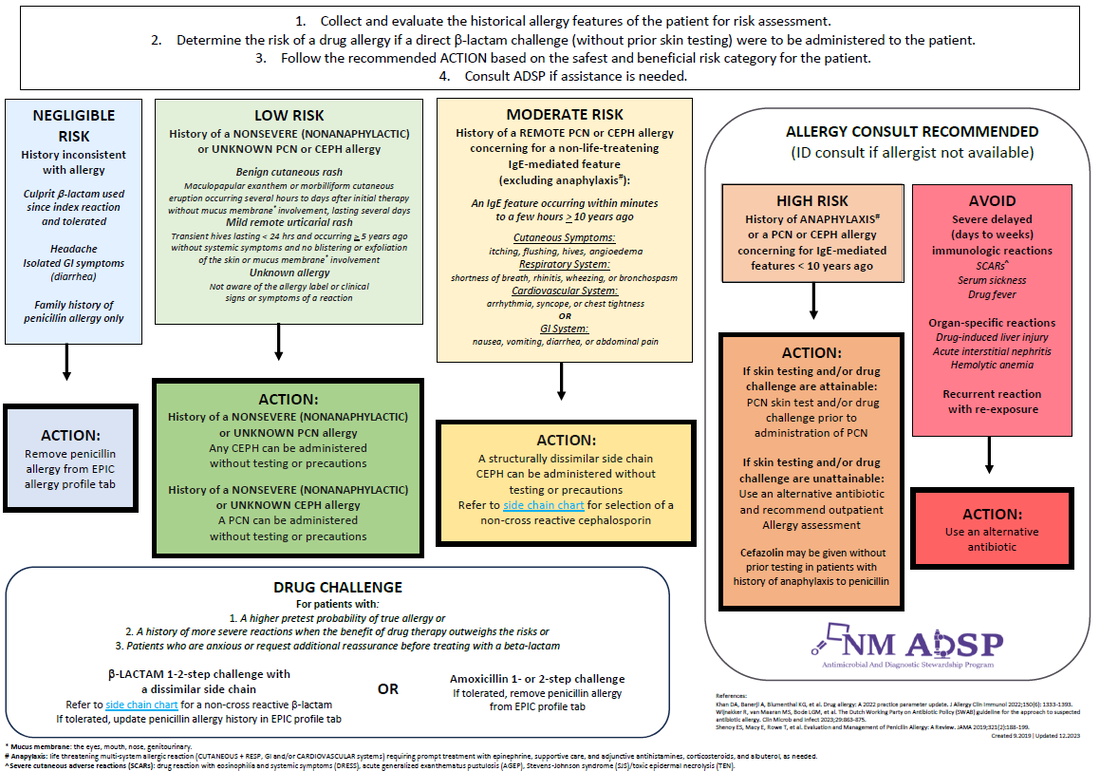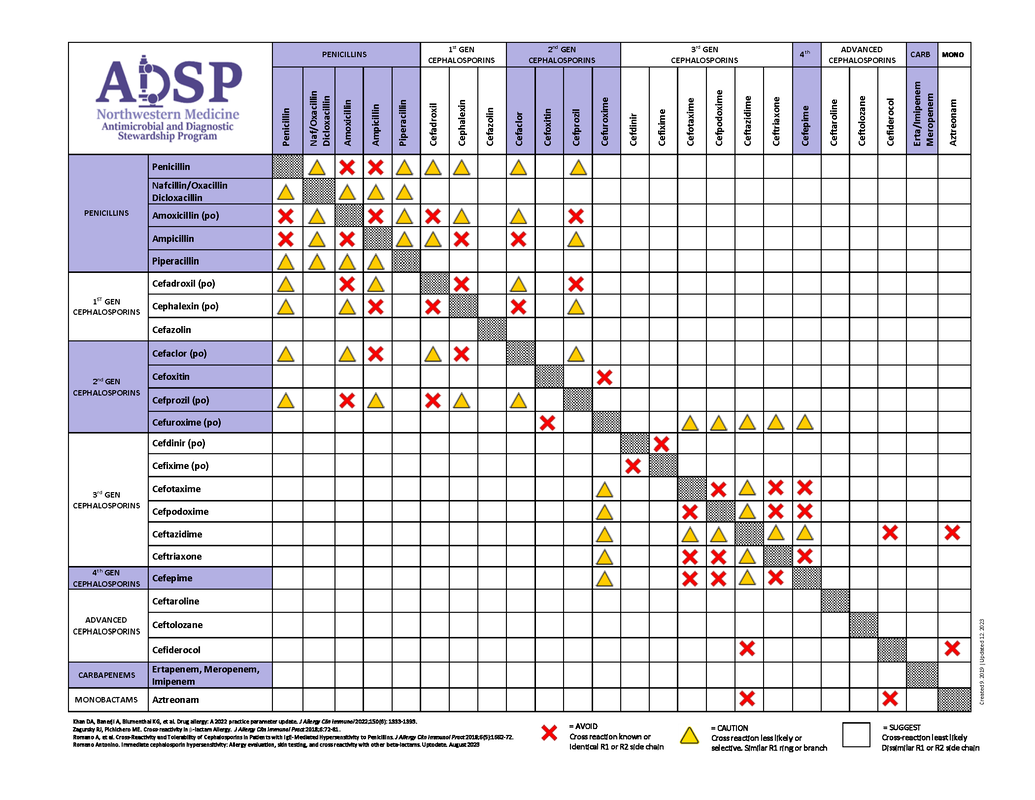Allergy Resources
|
Unconfirmed penicillin allergies and the use of alternative (second-line) antimicrobial agents have been associated with treatment failure, higher incidences of C. difficile, and longer hospital stays.
Cefazolin does not share a side-chain with any other beta-lactam and can be used in nearly all cases of beta-lactam allergies (unless the patient has a cefazolin allergy). The majority of patients (>80%) with a severe beta-lactam allergy no longer have an allergy and are able to tolerate beta-lactam antibiotics within 10 years. |
Graded Challenge Guidance Document (PDF)
Northwestern Memorial Hospital Beta-lactam Allergy Questionnaire (PDF) |
Beta-lactam Allergy risk assessment |
CROSS-REACTIVITY SIDE-CHAIN CHART |
Penicillin Allergy Infographics: Penicillin Allergy Background Infographic Cross Reaction Explanation Infographic



